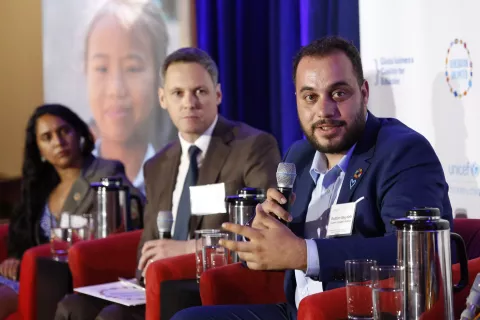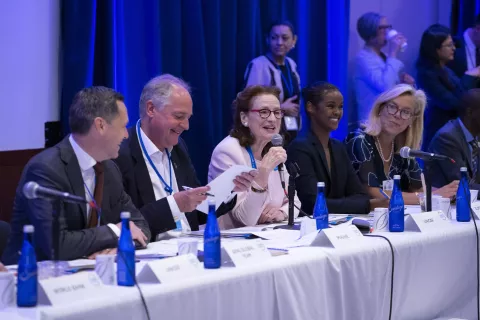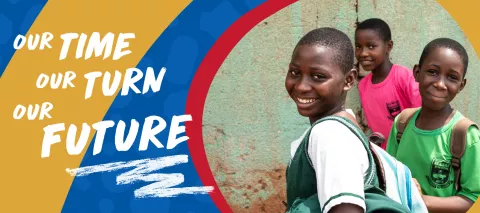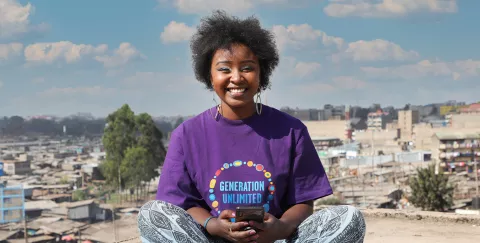UNICEF Prepares the Largest Generation in History with Support from SAP
Roberto Benes, director of Generation Unlimited, talks about the urgency of its mission to prepare the world’s 2 billion youth for decent work and active citizenry
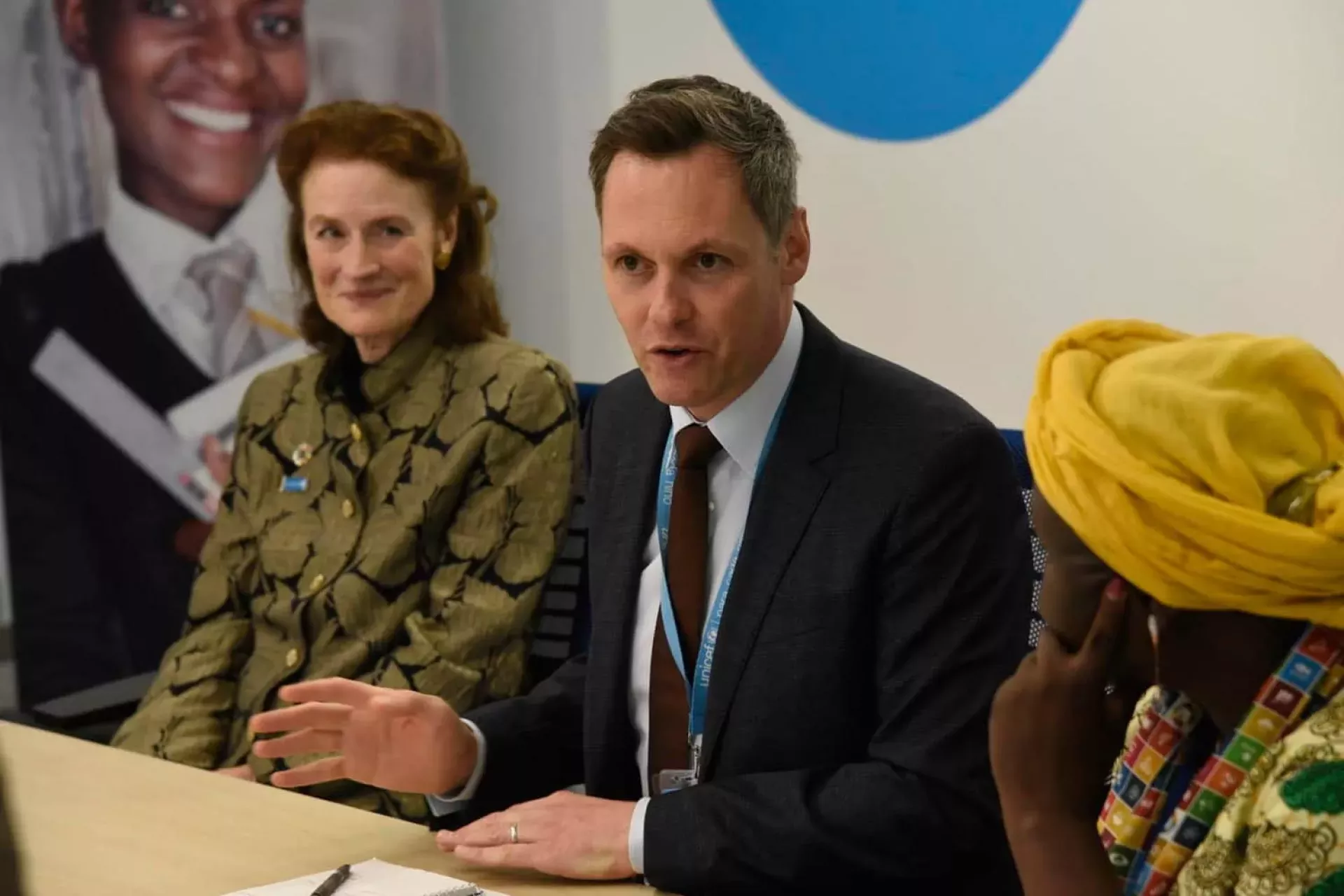
(via SAP News)
More than one in five young people are not in employment, education, or training. To address this global problem, SAP recently announced a partnership with UNICEF to provide digital skills to youths and help prepare them to join the workforce.
Here, Roberto Benes, director of Generation Unlimited, a global public-private partnership currently hosted by UNICEF, talks about the urgency of its mission to prepare the world’s 2 billion youth for decent work and active citizenry — and why the partnership with SAP is of critical importance.
Generation Unlimited has a mission to prepare 2 billion youth by 2030. Can you provide some context to these numbers and the sense of urgency driving this mission?
This is the largest generation of young people in history. These young people are asking to enter into the world of work with skills, opportunities, dignified roles, and dreams. This is happening now, but the economy is not creating the jobs we need for this large group. Here is just one example: 12 million young people join the African labor force every year, but only 3.7 million jobs are created.
In addition, the skills required by the market are not the skills that are being taught within the education system globally. This urgent mismatch of skills must be addressed, or we will have millions of young people at risk of being left behind. The principle of leaving no one behind is very important for Generation Unlimited. About 260 million young people are not in employment, education, or training. This is a heavy burden that if we don’t address it right here, right now, will carry over to the next generation with additional gravity. This is the calling of our time.
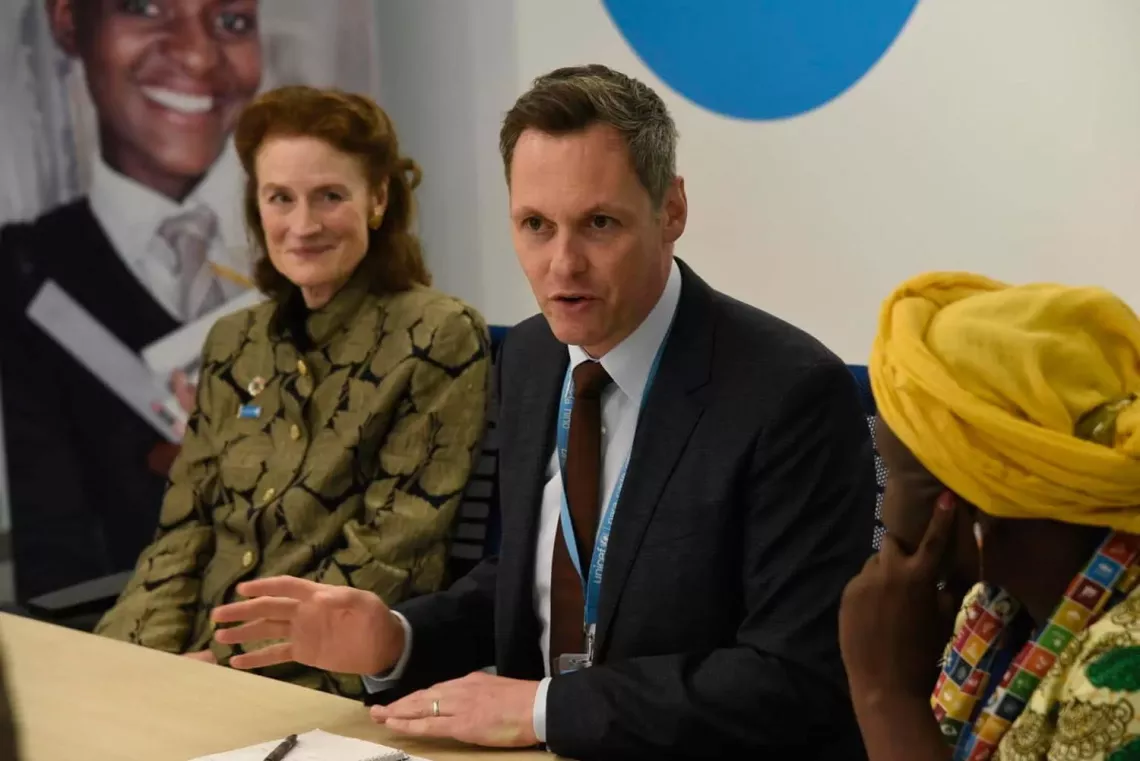
How are the combined currents of globalization and the digital revolution affecting this generation?
This accelerated trend toward interconnectivity across nations and the digital revolution creates tremendous opportunities, but also new challenges. Our capacity to adapt and respond in a timely manner will make the difference between failing or winning for this generation. There is a window of opportunity to create jobs in innovation and technology. Seventy-one percent of those age 15-24 are online, which is a great, but that means 29 percent are being left behind. We need to look at the opportunities created, while leaving no-one behind. This is not easy because problem solving, critical thinking, and emotional intelligence are essential to succeed in life, but difficult to build. This is why the partnership with SAP is so important. It is paramount to close this digital divide because it puts millions of young people who don’t have opportunities at risk.
How does digital literacy relate to the United Nations Sustainable Development Goals (UN SDGs)?
The reason why we believe that digital literacy is so important is because it benefits all other SDGs. Digital literacy is an essential component of SDG 4 (Quality Education) because we all need to learn a skill set to find quality relevant information, communicate, and make good use of technology.
For example, a local farmer in Ghana can use a mobile cell phone to sell crops, which contributes to SDG 1. A mother can find critical child health information online, which supports SDG 3. We know the importance of financial literacy through digital platforms to empower young women and girls to become entrepreneurs, and we know that digital literacy can help close gender employment gaps, which supports SDG 5. This tells you how central digital literacy is for Generation Unlimited.
How does Generation Unlimited aim to apply solutions at scale?
In development, one of the most difficult things to crack is scale. We know today that linear progress will not take us where we want to go. It will be too little and too slow to help millions of young people be prepared for decent jobs. One way is to expand the number of partners implementing these projects. Another possibility is to increase visibility and add assets to programs that are functioning well on a small scale. We re-engineer these small projects by providing technical capacities and high-quality experts to expand their outreach and absorption capacity.
Because we work closely with government, we have the capacity to anchor these projects within systems and integrate them into government budgets. If they are not in government budgets, they are not sustainable. We also know that unless we bring private capital into this larger scale approach, we will fail. Private capital can only happen, however, if there is a commercial return. Generation Unlimited wants to identify shared value partnership opportunities with the private sector. That’s the only way for us to move the capital that is needed to push good programs on a large scale.
Governments have varying opinions about how to prioritize digital literacy among the other challenges they face, such as clean water, reliable energy, and health. How does Generation Unlimited motivate governments to act on this issue?
We need to ensure that we make a compelling case for investment in young people. One of the arguments we use is that there is four times the return on investment for targeted intervention in the form of education for young people. In addition, governments know that if they don’t address these issues of youth employment, meaningful participation in society, relevance of skills taught to young people, and a massive investment in decent jobs – the potential for disruption of society and social cohesion is extremely high.
Just look back a few years to the Arab Spring, which was driven by massive unemployment and lack of social participation. Look at other places today — from Hong Kong to Chile, from Lebanon to Iraq — to see how young people are demanding better social participation, decent jobs, and better life quality. In European countries, we have situations where working conditions and life expectations of the young generation are the same or worse than for their parents. The fundamental assumption behind happiness and the realization of a human being – that “my future will be better than my past” – is broken.
How will you measure the success of Generation Unlimited?
Generation Unlimited has been active for one year. We have a business model that is very effective in countries. Generation Unlimited’s operating model is country-based and builds on and creates public-private platforms that will attract and pool investment to scale up innovation and make good programs grow, achieving better education, skills, and entrepreneurship and employment outcomes for young people at scale. Together with partners, Generation Unlimited supports national road maps and country investment agendas, a portfolio of scalable and bankable initiatives and innovations, designed with and for young people, to attract public-private capital and achieve large impact.
This involves strong commitment and leadership from highest levels of government, engagement of the private sector through shared value partnership, and participation from relevant international and local civil society organizations, and, most importantly, engaging young people as co-creators and implementers.
In this country work, we have a number of quality partners like SAP. With their support, we will operate in three countries: India, Turkey, and Vietnam. What’s next for us is to expand Generation Unlimited to become a global movement with operations in more countries.
Our success is measured in two ways: How many young people we reach with opportunities for education, apprenticeship, entrepreneurship, and literacy, and how much investment and partnership we broker and attract to support these programs. We are a platform that brings together and amplifies energies. The partnership with SAP is really the best example for us of how a company can partner with a development agency to ensure sustainability and unite their brilliant ideas and energy.
Join SAP in Support of Generation Unlimited
Find out how your company can participate in this strategic partnership with Generation Unlimited and SAP: GenerationUnlimited.org/Join-Us. Learn more about how SAP supports the UN SDGs here.
SAP Corporate Social Responsibility focuses on three strategic program pillars: building digital skills, accelerating best-run non-profits and social enterprises, and connecting employees with purpose. The programs within each pillar embrace the framework of the UN SDGs, focusing primarily on three of the 17 goals: quality education (SDG 4), decent work and economic growth (SDG 8), and strengthening partnership for sustainable development (SDG 17).
In 2018, SAP partnered with more than 800 organizations, donating €22.8 million to education and workforce development programs as well as youth entrepreneurship projects. These digital skills programs took place in more than 93 countries, accelerating SAP’s ability to build and reach a diverse, skilled workforce. SAP is committed to delivering 270,000 hours of employee volunteering each year. In 2018, 55 percent of all employee volunteer hours were skills-based in support of these education, workforce readiness, and youth entrepreneurship programs.

